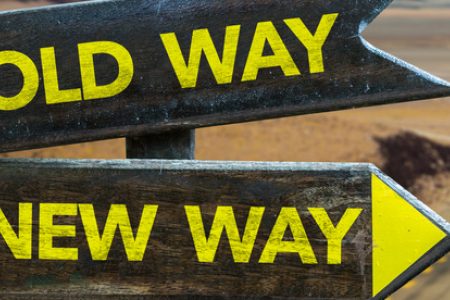I want to stop eating but I can’t
Food is essential for our daily functioning, but what if food becomes an obsession? What if you can’t stop eating, even though it’s the thing you want most? Well, you’re not alone: there are many more binge eaters out there.
You are what you eat, aren’t you? Well if that’s so, it means that last Friday evening I was “too much”, and the next morning, filled with regret, I was “nothing”. Fortunately, as the author of the above blog stated, this isn’t what is meant by “you are what you eat”. But that doesn’t take away the fact that I overate on Friday and felt bad all day Saturday; it means I had an episode of binge eating.
Binge Eating Disorder
So we are familiar with binge drinking and binge Netflixing, but what actually is ‘binge eating’? Simply put, an episode of binge eating entails that you eat too much in too little time, lose control of yourself in the process, and feel guilty afterwards. This can already be a problem for those who have the occasional binge, but those who have regular eating binges can suffer physically as well as mentally and may be diagnosed with Binge Eating Disorder (BED). BED made its debut in the DSM-5, but of course binge eating has been around for a good while. People who suffer from BED often feel powerless to stop eating, feel numb during these episodes, and rush to eat as much food as possible, as quickly as they can. “My hands were not attached to my mind, and I could only stop when I felt so full I wanted to puke.”
Binge eating episodes
The food consumed in one binge eating episode can add up to as much as 15,000 calories in total, and can include every imaginable type of food (though vegetables are rarely consumed in such an episode). Patients have reported everything up to several large pizzas, full loaves of bread, boxes of donuts, uncooked cake batter, and full jars of peanut butter. In this process of binge eating, some may skip chewing altogether, and some people even resort to eating out of trashcans or consuming food that is still completely frozen. These, however, are the extreme examples. Less extreme episodes of binge eating are much more common: about 13% of the general population has infrequent episodes of binge eating. According to the DSM’s criteria, an episode of binge eating contains at least 2,000 calories, which is easily reached by these fast food meals, a maxi bag of M&Ms, 12 stroopwafels, two large bags of crisps, or 49 cheese twists.
Negative emotions
‘He is just fat’ or ‘She’s addicted to food’ just doesn’t cut it, though. BED is an actual mental disorder, though it is hugely stigmatised and barely recognised. Similarly to your casual Sunday afternoon Netflix binge, an episode of binge eating may leave you feeling guilty, sad, angry, or crippled with shame. These negative emotions can be associated with your weight, your figure, or “cheating” on your diet, and are facilitated by constantly weighing yourself or checking yourself out. The negative emotions often lead to even stricter dieting and even harsher rules regarding food, which will only boomerang you into more hunger, and more and bigger binges, which again leads to more negative emotions. As you read this, it should come as no surprise that BED is underdiagnosed and undertreated.
Underdiagnosed
This is where the real barriers lie. Primary care physicians don’t have the knowledge or experience to recognise this new diagnosis yet. This, combined with the lack of help-seeking on the part of patients (partly due to shame and lack of awareness), makes for the perfect recipe for an underdiagnosed mental illness, even though sufficient help is available.
With all this strongly flavoured, highly caloric food available to please our brain, binge eating is a growing problem and still severely underreported and under-recognised. The negative spiral following a binge leads to more restrictive eating and eventually more and bigger binges. Though this may seem like behaviour only you do, you are not alone. If you feel binge eating impacts you too much, talk to your GP about your options.
Recognise yourself in this blogpost? More information and treatment options can be found at novarum.nl/eetproblemen/wat-is-een-eetbuistoornis/





